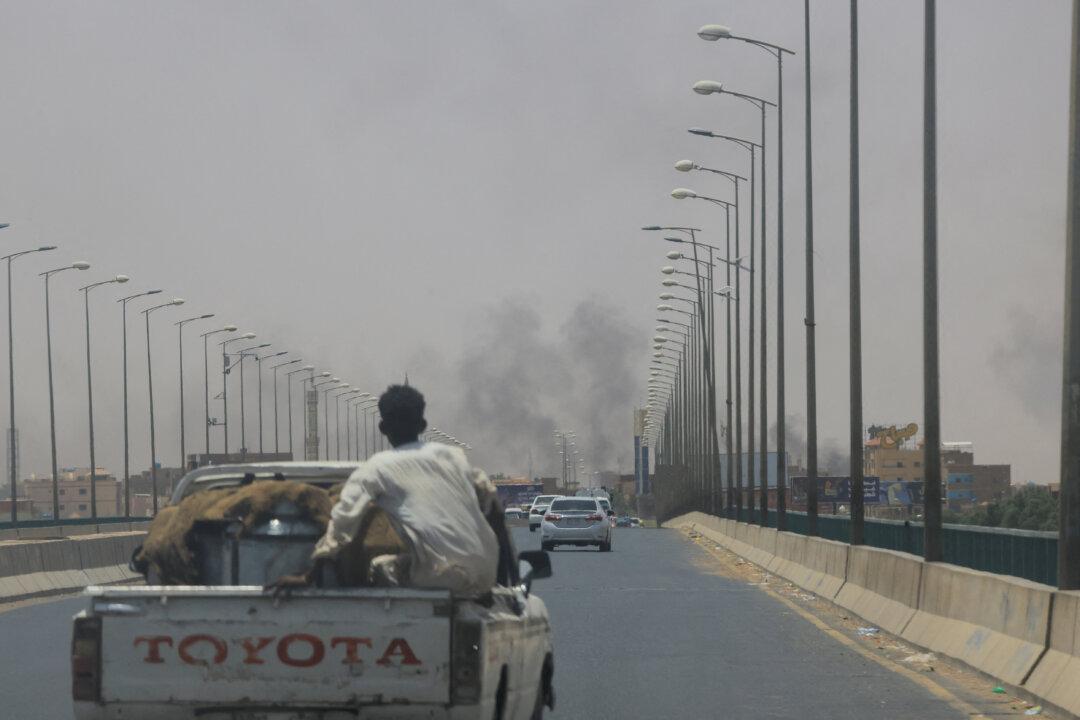KHARTOUM, Sudan—Sudan’s army launched air strikes on a rival paramilitary force’s base near the capital in a bid to reassert control over the chaotic country on April 16 after a power struggle erupted into clashes that killed 56 civilians and dozens of fighters.
The fighting that broke out on April 15 between army units loyal to Gen. Abdel Fattah al-Burhan, and the Rapid Support Forces (RSF), led by Gen. Mohamed Hamdan Dagalo, known as Hemedti, is the first such outbreak since both joined forces to oust President Omar Hassan al-Bashir in 2019.





